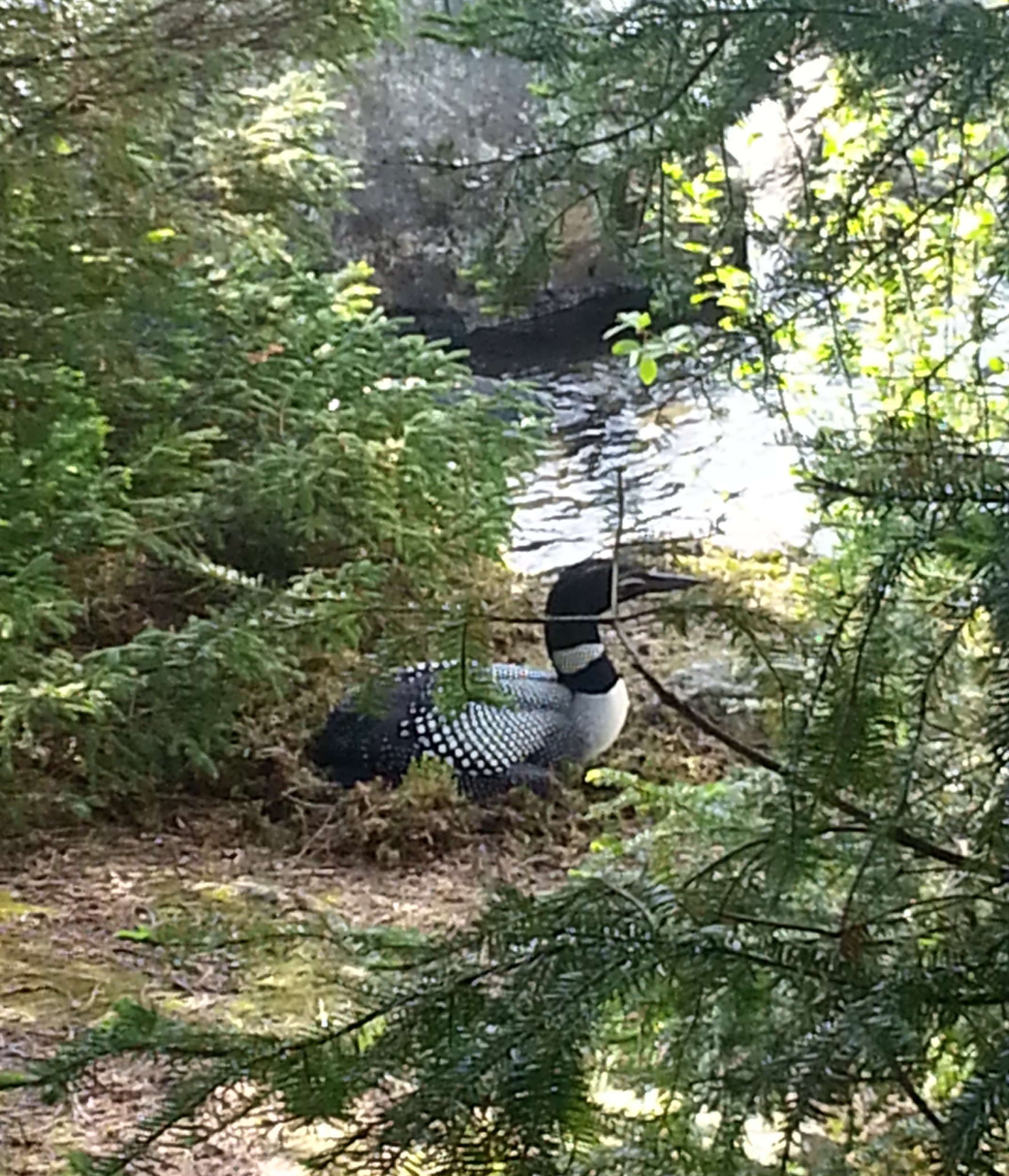
New loon nest on Caspian Lake nearly 10 feet from the water line. Photo by Anastasia Lyman
Last week, the loon pair on Metcalf Pond nested on summer cottage beach. Bad move. After 3 or 4 days of incubation, the eggs disappeared and the loons gave up even before the landowners came for Memorial Day weekend. The landowners were going to try to accommodate the pair, but the poor nest site choice was quickly noted by some shoreline predator – probably a raccoon or mink. It’s likely a young male chose this poor nest location.
Over the past 20 years, Dr. Walter Piper has followed the fate of thousands of color banded loons in northern Wisconsin and has learned incredible details of loon life. One finding is that male loons usually select the nest location. When there is a change in the male within a pair, the nest site often changes. When there is a change in a female partner, the nest site is usually back in the same location as the previous year.
In 2015 on Metcalf Pond in Fletcher, Vermont, only one loon returned in May after four years of nesting. In late June, a second loon arrived and appeared to pair with the single bird. This year, the “new” pair returned and nested last week the beach front lawn. The lake has an island and a totally undeveloped marsh full of hummocks that would make excellent nest sites. The previous pair usually chose the marsh as a nest location and produced chicks.
I’m guessing that maybe it was the male that disappeared last year, was replaced by a new male, and that new male has a bit to learn about how to find a successful nest location. Hopefully the pair will re-nest in a better location in the next few weeks. I could anthropomorphize in great detail here, but I’ll leave that to the better halves in all the relationships out there.
Other Breaking Loon Nesting News
On another note, we have two new loon pairs in Vermont on Curtis Pond and Caspian Lake. The pair on Curtis has built a beautiful nest bowl in the swampy north end. Another pair on Caspian Lake started nest building about 8 feet up a steep bank, but seems to have given up likely due to the cliff-like climb to reach this location. We don’t know if eggs were laid or not, but the pair has not returned to this high site far from the lakeshore. I placed a nesting raft about 100 feet away today, June 1, in hopes of luring the pair to a better location on this highly developed lake that can be protected for years to come.
Learn more about our Common Loon Conservation in Vermont and how you can help on our web site.

I’ve owned camp HEAVEN-LEIGH on Metcalf pond since 2004
I grew up in the projects never knew country living
I LOVE THE VT LOONS when I first noticed it was only one for years I named him SOLO
THEN GE GOT A GIRL THEY HAVE BEEN NESTING ACROSS FROM US ON AN ISLAND
SO DAR IVE SEEN 4 births only 3 survived
Do you study them????? Are they the same pair for the last 5 years I think so because the keep nesting on the same island
My name is Kassiah